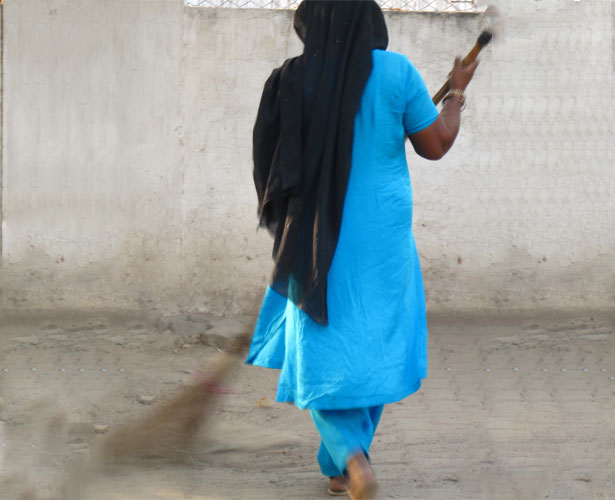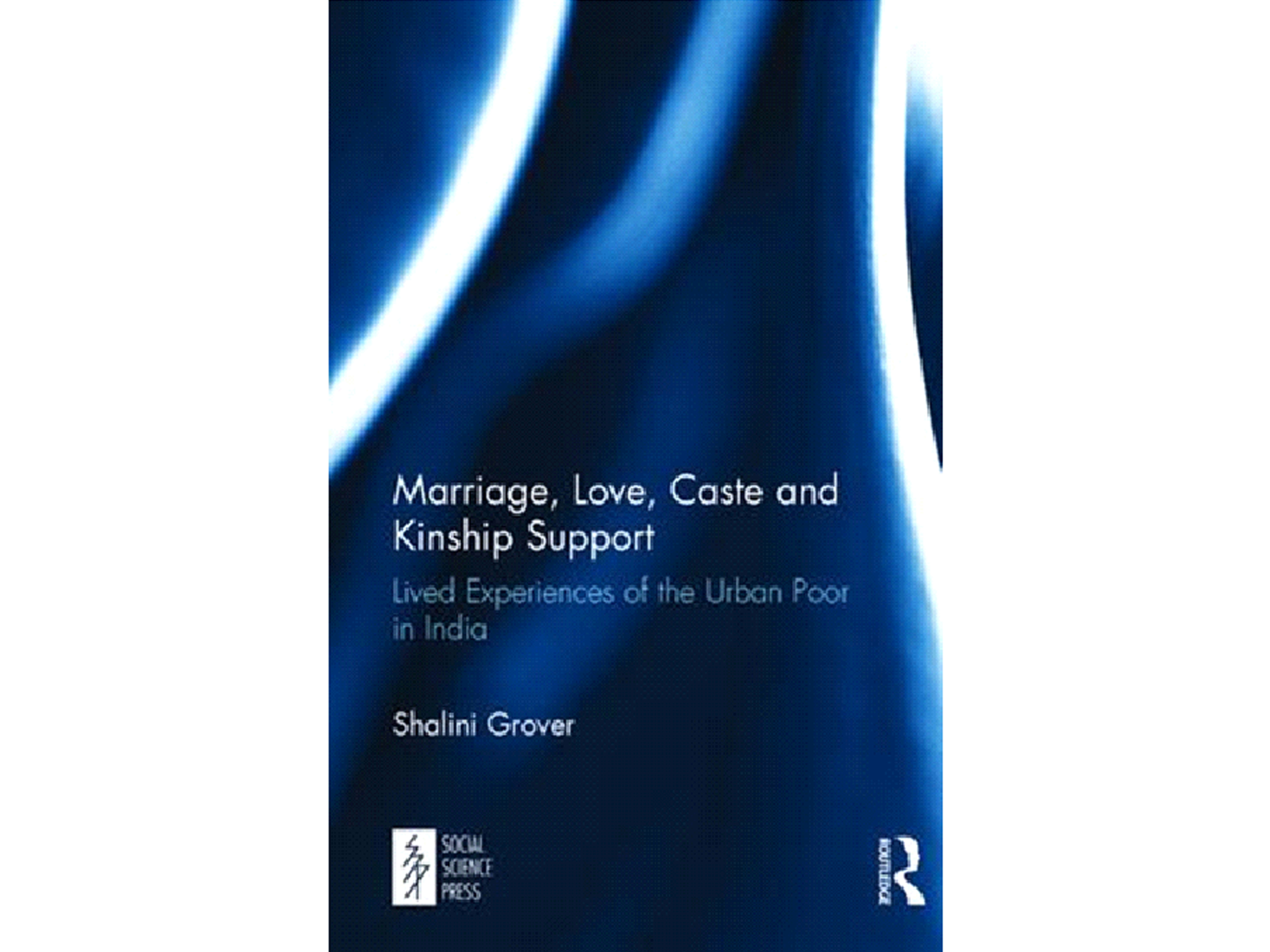Shalini Grover
This is my personal web-site. It has links to my publications, writings in newspapers/blogs, and professional experience. It also highlights on-going and new areas of research.
Education and CV
In 2006 I received my PhD from the Department of Social Anthropology, University of Sussex, UK. Prior to my doctoral degree I have studied at University of Cambridge, The London School of Economics and Political Science, and University of Delhi. Post 2007, I have been based in Delhi, at the Institute of Economic Growth (IEG). At IEG’s Sociology Unit, I have held the posts of ‘Sir Ratan Tata Postdoctoral Fellow, 'Senior ICSSR Research Fellow in Social Anthropology' and ‘Associate Professor'.
I am currently based at the London School of Economics (LSE), International Inequalities Institute (III). I am a researcher for Globalizing Care-Domestic Economies, working on my second book and other collaborative projects. See http://www.lse.ac.uk/International-Inequalities/People/Shalini-Grover
Research Profile and Interests:
On-going and New
I locate myself within the disciplines of anthropology and gender studies. I have engaged in public debates through writings in newspapers and blogs, as well as documentary films. My principal areas of research have been marriage, kinship, family, divorce and legal pluralisms in urban India. Distinct from earlier anthropological texts that primarily examine official marriage norms, my research engages with embodied experience and lived practice. My findings challenge many stereotypes, for example, the notion that gender relations within scheduled caste marriages are egalitarian in nature, that women’s ties to their mothers and other natal kin in north India are severely attenuated upon marriage, and that parentally arranged marriages are more stable than those based upon romantic love. Given that India is witnessing social transformations, we are in urgent need of more rich ethnographic representations that can inform wider audiences. Correspondingly, I dispute populist journalistic claims of a dramatic rise in formal divorce. I argue that in the present middle-class milieu, what is conspicuous is the changing (gendered) nature of legal behavior. My recent publications offer an analysis of divorce statistics and middle-class women as new legal subjects.
In augmenting the anthropology of women’s work preferences for the Asia region, my recent work is in the domestic service sector. Since 2013, my exploratory areas include narratives of social mobility, and the domestic workers wider relationship with global forces, transnationalism and capitalism. I have collected the biographies, genealogies and original food recipes of female domestic workers. My employer-respondents are Euro-Americans in Delhi, as this niche market with its link to transnationalism have been understudied. The category ‘western expatriate’ or ‘Euro-American’ enables me to explore cultural integration and race-class entitlements (e.g. ‘who is an expatriate in India?’). Intersectionality (class, caste, race and gender) lies at the heart of my endeavors in exposing global inequalities, especially how care-work and domestic labour is valued in the global south in contrast with the north.
Summary of Research Interests:
My Book and New Revised Edition: Available on Amazon, E-Books and Routledge
Marriage, Love, Caste, and Kinship Support: Lived Experiences of the Urban Poor in India.
Delhi: Social Science Press.
The Books Main Contributions
My book presents a close and critical scrutiny into ‘arranged marriages’, ‘love marriages’, ‘secondary unions’ (remarriages) and widow relationships. My ethnography delineates how these conjugal unions and arrangements of the urban poor are rich, complex, unpredictable, and often transient in nature. My chapters disentangle women’s subjectivities of these diverse relationships and draw out contrasts and parallels. They indicate and shed new light on which form of marriage serves women’s interests best and why. So far there has been little analytical inquiry into the egalitarian potential of alternative conjugal forms, in particular marriages based on romantic and consensual love, and women’s ‘positioning’ within these unions. In addition my study calls for the greater recognition of the widespread phenomenon of secondary unions and their frequent compulsions, arrangements and realities in an urban locale. An important contribution of the book lies in the unfolding of the role of women-led informal courts, Mahila Panchayats, and their influence in conflict resolution and in (re)shaping gender norms. This takes place in a distinctly different mode of community-based arbitration against the backdrop of mainstream legal structures and male-dominated caste associations.
Praise for New Revised Edition (2017): Marriage, Love, Caste, and Kinship Support: Lived Experiences of the Urban Poor in India. Routledge, United Kingdom and Delhi, Social Science Press
‘What we are offered is quite enough to make this book essential reading for anybody concerned with marital trends in contemporary India.
- Jonathan Parry, London School of Economics and Political Science
2013. Parry, Jonathan. Contributions to Indian Sociology. 47 (1):141-3.
‘This book tries to examine several feminist questions and answers through ethnographic examination. I found the book very focused and full of interesting ethnographic vignettes. The use of local categories, metaphors and proverbs makes the work rich. I strongly recommend the book for students of anthropology and sociology, gender studies and those interested in marriage and kinship studies.'
- Nilika Mehrotra, Jawaharlal Nehru University, New Delhi
2011. Mehrotra, Nilika. Indian Anthropologist. 41 (2): 99-100
‘Shalini Grover’s Marriage, love, caste and kinship support makes a significant contribution to contemporary marriage scholarship in South Asia.’
- KABITA Chakraborty, York University
2013. Chakraborty, Kabita. Journal of the Royal Anthropological Institute. (n.s.). 19: 894-4.
This ethnographic study of marriage and cohabitation in a low-income neighbourhood in India’s capital city of Delhi engages with questions of kinship, love and courtship, intimacy, women’s agency, gender politics, marital conflict and breakdown, women’s labour and employment and caste in an urban context. Rich in ethnographic detail, the book is a valuable addition to the existing literature on family, kinship and marriage in India and would be of great interest to sociologists, anthropologists, scholars of Asian studies and gender studies.
- Shruti Chaudhry, University of Edinburgh
2013. Chaudhry, Shruti.Sociology. 47 (1): 204-5.
First Edition Praise
‘This book provides a new and welcome perspective on contemporary marriage and co-habitation patterns among the Indian urban, low-caste, poor. This is a subject on which little previous anthropological research has been done; consequently, much that has been written on it is replete with stereotypes. The rich ethnography, with its large number of extended case studies of the marital experiences of individual women and married couples, is one of the work’s strong points. It should be widely read by anyone interested in the Indian family and kinship structure or in issues of poverty, marriage, and urban life more generally.’
- Professor (Emeriti) Sylvia Vatuk, University of Illinois
‘This book deserves a large audience. With fascinating case studies and detailed ethnographic material, Shalini Grover enriches our understanding of how poor urban women in Delhi negotiate their married lives, move in and out of relationships, and mobolise support from their kin or from women-led formal courts. Using her data to argue robustly against many unfounded presumptions about gender politics, love, marriages, intimacy, and married women’s relationships with their families of origin, she makes important interventions into wider debates about gender, marriage and kinship.’
- Professor Patricia Jeffery, University of Edinburgh
Shalini Grover’s ethnography of marriage, re-marriage and arbitration in an urban squatter colony makes a significant contribution to recent feminist and anthropological research on marriage, kinship and law in India. Grover provides rich vignettes of cultural negotiations around marriage: gender- and caste-inflected ideologies of role in marriage, the cushion provided by kin support, conjugality in the shadow of the law. We see the ways in which marriage is dynamically shaped through kin and labour demands, and legal pluralities emerging through innovative NGO and caste council actions. My favourite is the chapter on mahila panchayats, “women’s courts” which work to change the adversarial contours of marital disputes but are nonetheless embedded in normative gendered scripts.
- Professor Srimati Basu, University of Kentucky
Countries of Residence and Citizenship
Born in Bombay, I am an Indian citizen living in New Delhi. I have lived in the United Kingdom, Norway and Kenya. Besides speaking English and Hindi that are my main languages for communication, I speak Norwegian at conversational level.
I am married to economist/academic Vegard Iversen (1995). We have two boys who were born in Delhi. Our Indo-Norwegian children are growing up in a joint-family in Delhi, in a household with four different generations.
Contact
For disseminating research findings, publications and critical engagement with debates, I am happy to be contacted at this permanent e-mail address: drshalinigrover@yahoo.co.uk

